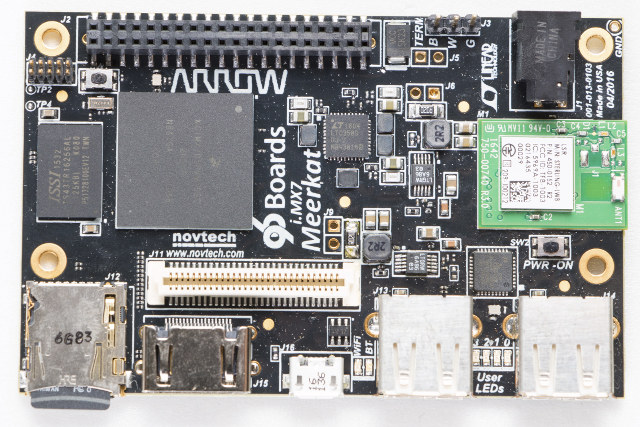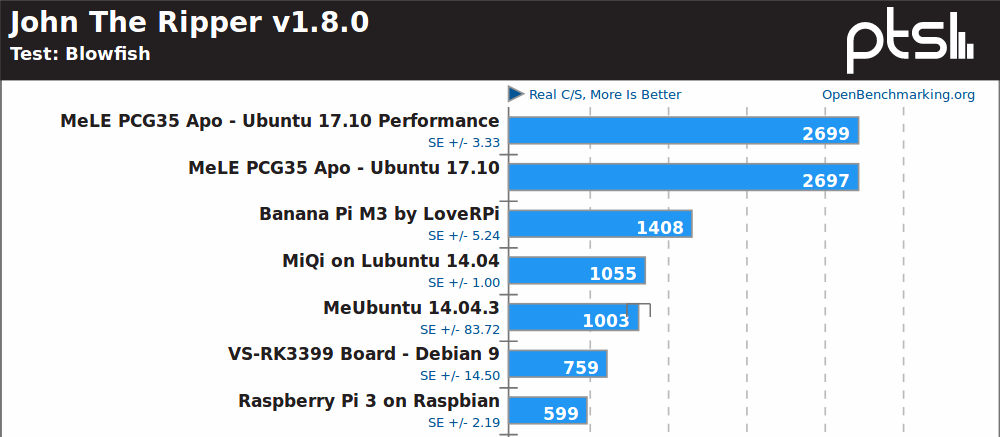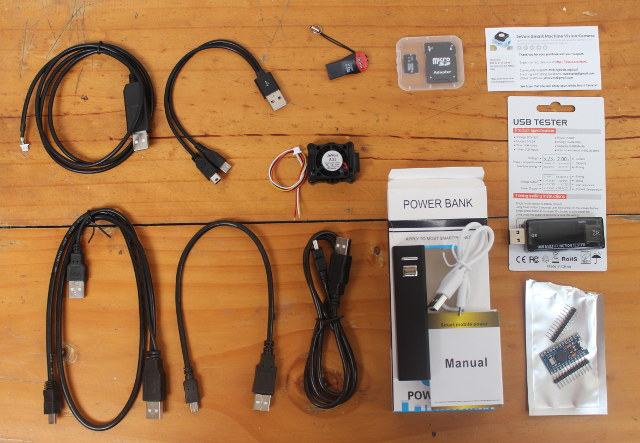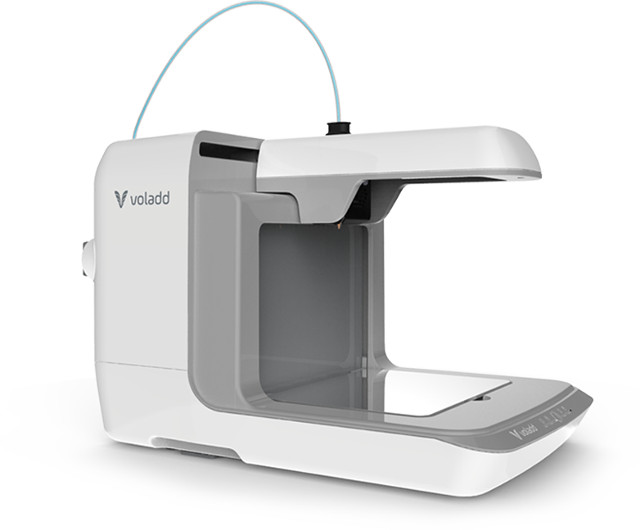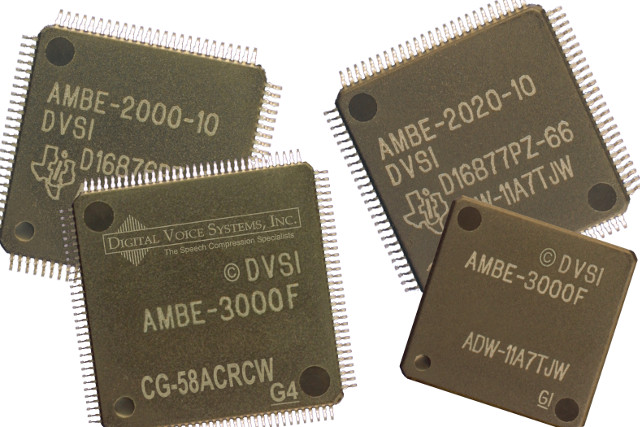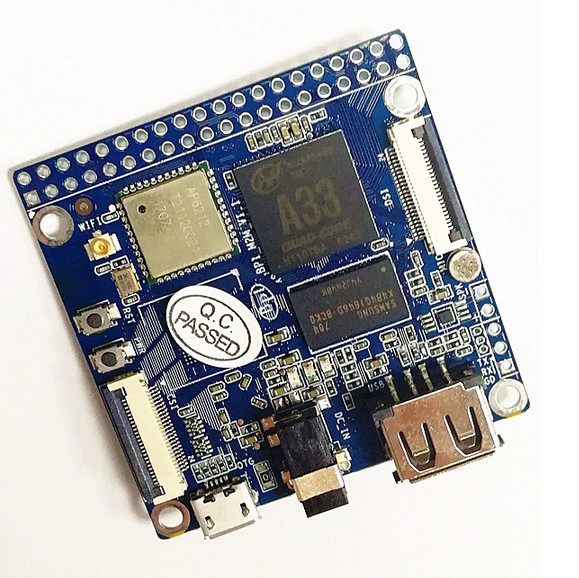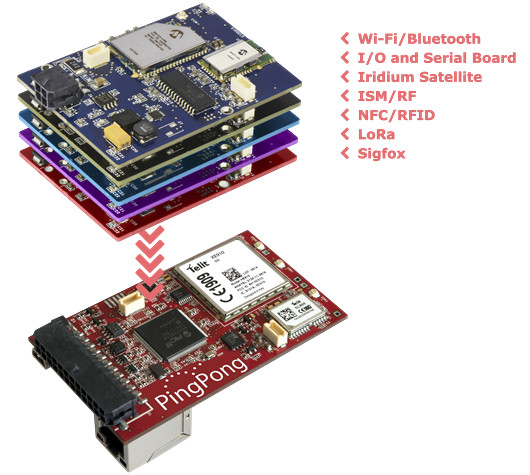If you have really good memory, you may remember that Freescale was working on a 96Boards compliant i.MX 7 development board in 2015 that was supposed to be released in Q4 of that year. Yesterday the board was finally launched and demonstrated on 96Boards OpenHours. i.MX7-96 board (aka Meerkat) is powered by an NXP i.MX 7 dual core ARM Cortex-A7 + 1x Cortex M4 processor, coupled with 512MB RAM, and complies with the Consumer Edition (CE) of 96Boards specifications. iMX7 96 board specifications: SoC – NXP i.MX 7Dual dual ARM Cortex-A7 processor at 1.2 GHz, with Cortex-M4 @ 200 MHz and 2D accelerator System Memory – 512 MB DRAM Storage – micro SD slot Video Output – HDMI Connectivity – 802.11 b/g/n WiFi + Bluetooth 4.1 LE (LSR Sterling-LWB module) USB – 2x USB 2.0 hosts, 1x micro USB 2.0 OTG Camera – 1x MIPI-CSI Expansion Interfaces 40-pin low speed […]
Linux Benchmarks – Intel J3455 Apollo Lake vs Z3735F Bay Trail vs RK3399 and Other ARM Platforms
Since I’ve just installed Ubuntu 17.10 on MeLE PCG35 Apo, I decided I should also run some benchmarks comparing with other ARM and x86 Linux platforms I’ve tested in the past.I was particularly interested to compare the performance of Intel Apollo Lake processors (Celeron J3455 in this case) against higher end ARM processors like Rockchip RK3399 (2x A72, 4x A53) since systems have a similar price (~$150+), as well as against the older Bay Trail processor to see the progress achieved over the last 2 to 3 years. To do so, I used Phoronix Benchmark Suite against Videostrong VS-RK3399 results (RK3399 development board):
|
1 2 3 4 |
sudo apt install php-cli php-gd php-xml php-zip wget http://phoronix-test-suite.com/releases/repo/pts.debian/files/phoronix-test-suite_7.4.0_all.deb sudo dpkg -i phoronix-test-suite_7.4.0_all.deb phoronix-test-suite benchmark 1709271-TY-1704029RI26 |
The benchmark first issued a warning about “powersave” governor, but I still went ahead, and once completed I change it to “performance” governor:
|
1 2 |
sudo apt install cpufrequtils sudo cpufreq-set -r -g performance |
…and ran the tests again. All results are available on OpenBenchmarking. Let’s address the governor results first. cpufreq-info reports that powersave governor […]
JeVois Smart Machine Vision Camera Review – Part 1: Developer / Robotics Kit Unboxing
JeVois-A33 computer vision camera was unveiled at the end of last year through a Kickstarter campaign. Powered by an Allwinner A33 quad core Cortex A7 processor, and a 1.3MP camera sensor, the system could detect motion, track faces and eyes, detect & decode ArUco makers & QR codes, follow lines for autonomous cars, etc.. thanks to JeVois framework. Most rewards from KickStarter shipped in April of this year, so it’s quite possible some of the regular readers of this blog are already familiar the camera. But the developer (Laurent Itti) re-contacted me recently, explaining they add improves the software with Python support, and new features such as the capability of running deep neural networks directly on the processor inside the smart camera. He also wanted to send a review sample, which I received today, but I got a bit more than I expected, so I’ll start the review with an […]
Voladd Cloud-Connected Linux 3D Printer is Powered by BeagleBone Black Board (Crowdfunding)
So far, all of the 3D printers that have been reviewed on this blog require you to design or download a 3D object on your computer, and print it from an SD card. But thanks to OctoPrint software and cheap ARM Linux developments boards, it has become possible to add a Linux computer with webcam to remotely start and control the 3D printer for a few dozens dollars. Karl has even released an OctoPrint image for Orange Pi Lite board. Voladd 3D printer already embeds a Linux board, namely the BeagleBone Black running Debian, which allows the 3D printer to be easy to use since no software installation is required. You can start printing by selecting an object in a web browser or an app in your smartphone, and they’ve also taken steps to eliminate/reduce maintenance tasks, such as the inclusion of a filament cartridge. Voladd 3D printer specifications: Internal […]
AMBE+2 Vocoder Promises High Voice Quality at Low (2.0 to 9.6 Kbps) Data Rates
Opus 1.2 open source audio codec was release a few months ago with the ability to deliver low power low high-quality audio bitrate for speech with bitrates as low as 12 Kbps. Digital Voice Systems (DVSI) claims to have gone even lower thanks to their AMBE+2 vocoder (Advanced MultiBand Excitation) providing high-quality speech at data rates from 2.0 to 9.6 kilobytes per second. AMBE+2 vocoder is said to outperform the company’s previous generation AMBE+ Vocoder as well as the G.729 and G.726 vocoders, while operating at only 4.0 Kbps. The vocoder is suitable for mobile radio, secure voice, satellite communication, computer telephony, digital voice and storage applications The solution can be integrated into product either using software licensing, or through Vocoder chips, and the company lists the following key benefits: Maintains speech intelligibility and speaker recognition at rates as low as 2.0 kbps Resistant to background noise and channel bit errors […]
CHUWI LapBook 14.1 Laptop Manufacturing Changes – Hardware at Launch vs Several Months Later
Products may evolve over time due to parts becoming phased out (EOL), so company often issues PCN (product change notices) to the company for example to replace eMMC flash that’s not manufactured anymore by a new one. They won’t change any advertised features, so the product specifications should remain the same. Reviewers normally get product from one of the first batch of production, and if you purchase the product a few months later, after carefully reading reviews, you may end up with a device slightly different. But in some cases, the company makes major changes, while still delivering the same advertised hardware specifications. That’s apparently the case for CHUWI LapBook 14.1 laptop. The photo below shows how it looked internally for the sample I reviewed. If you zoom on the photo, you’ll find an M.2 slot on the bottom of the right PCB, potentially allowing you to add an SSD […]
Banana Pi M2 Magic Board Now Sold with Allwinner A33 Processor for $23
Banana Pi M2 Magic development board was first unveiled in February of this year with an Allwinner R16 SoC, 512 MB RAM, and 8GB eMMC flash, and its main selling points were support for MIPI DSI LCD displays, CSI cameras, and 3.7V LiPo batteries. AFAIK SinoVoIP never sold that version of the board, at least on Aliexpress. Possibly due to the intricacies of Allwinner business units, the company has now officially launched Banana Pi M2 Magic (aka BPI M2M), but replaced Allwinner R16 by the similar Allwinner A33 processor, and removed the 8GB eMMC flash to bring the price down to $23 plus shipping. The “old” Allwinner R16 based Banana Pi M2 Magic board will apparently be sold as M2 Magic Plus soon. Banana Pi BPI-M2 Magic (A33) specifications: SoC – Allwinner A33 quad core ARM Cortex-A7 processor with ARM Mali 400 MP2 GPU System Memory – 512MB DDR3 Storage […]
PingPong IoT Development Board Supports Cellular Connectivity, WiFi, Bluetooth, LoRa, Sigfox, and More
Round Solutions, a supplier of products, services and concepts for industrial M2M and IoT markets, has introduced PingPong IoT development board with either Microchip PIC32MZ running an RTOS, or PIC32MZ DA running Linux, and equipped with a Telit modules for either 2G or 3G cellular + GNSS connectivity. The board can also support WiFi, Bluetooth, ISM/RF, NFC/RFID, LoRa, Sigfox, Iridium satellite, and serial interface thanks to a range of expansion boards. PingPong IoT board specifications: MCU / Flash RTOS version – Microchip PIC32MZ 32-bit Microcontroller @ 200 MHz, with 512 KB RAM and 2 MB Flash Memory + 4 MB external memory Linux version – Microchip PIC32MZ DA (Full specs TBA) Connectivity Cellular connectivity Telit xE910 module with 2G, 3G and/or 4G LTE (coming soon) Data GSM/GPRS – Uplink/Downlink: 9.6 kbps UMTS – Downlink: 384 kbps, Uplink: 384 kbps HSPA+ – Downlink: 42.0 Mbps, Uplink: 5.75 Mbps LTE – Download: 100 […]


